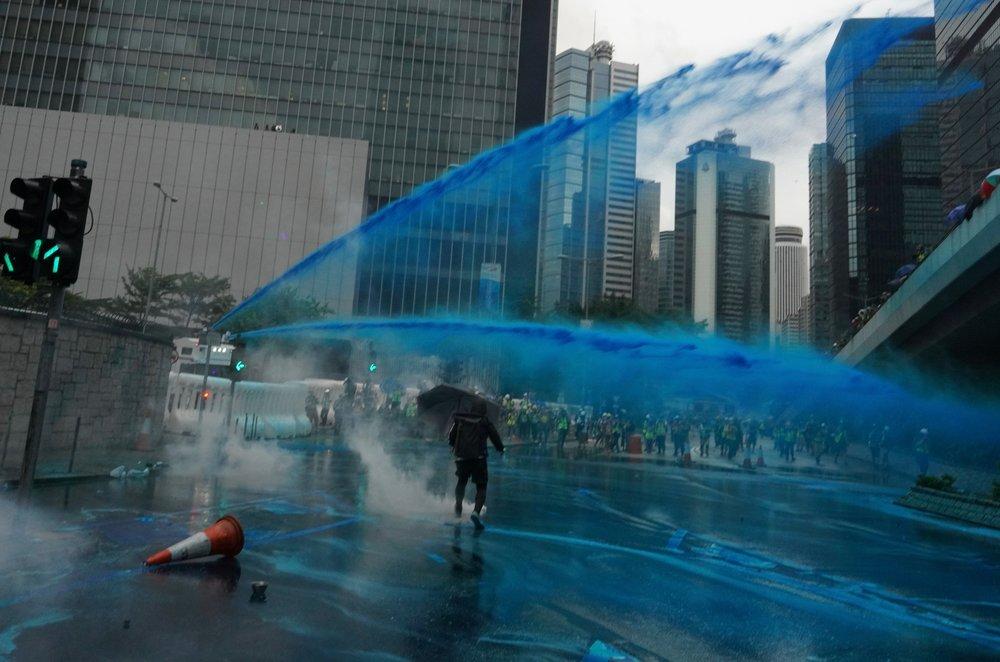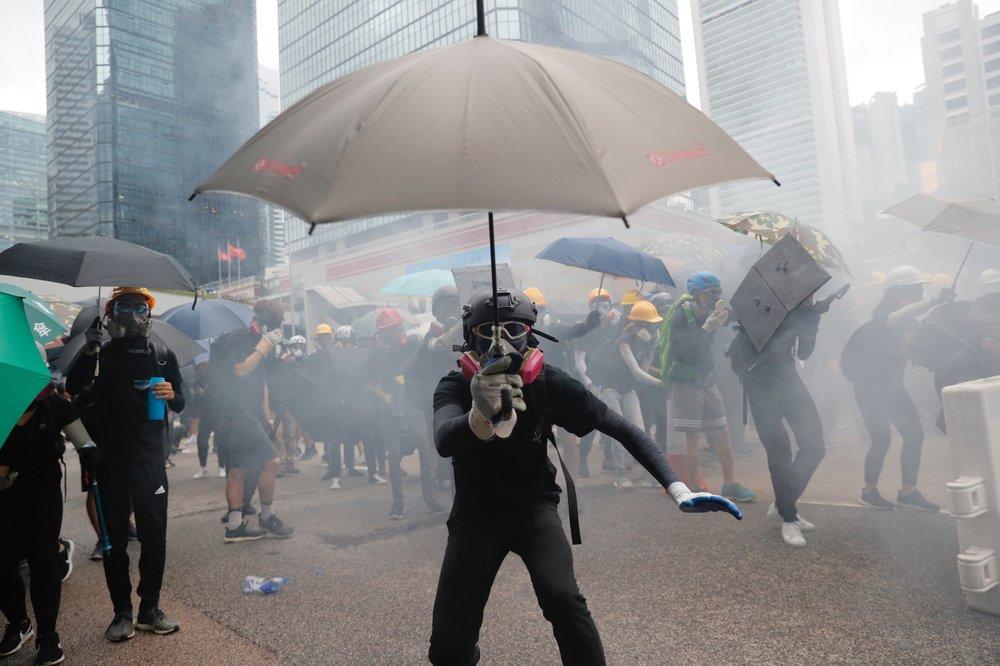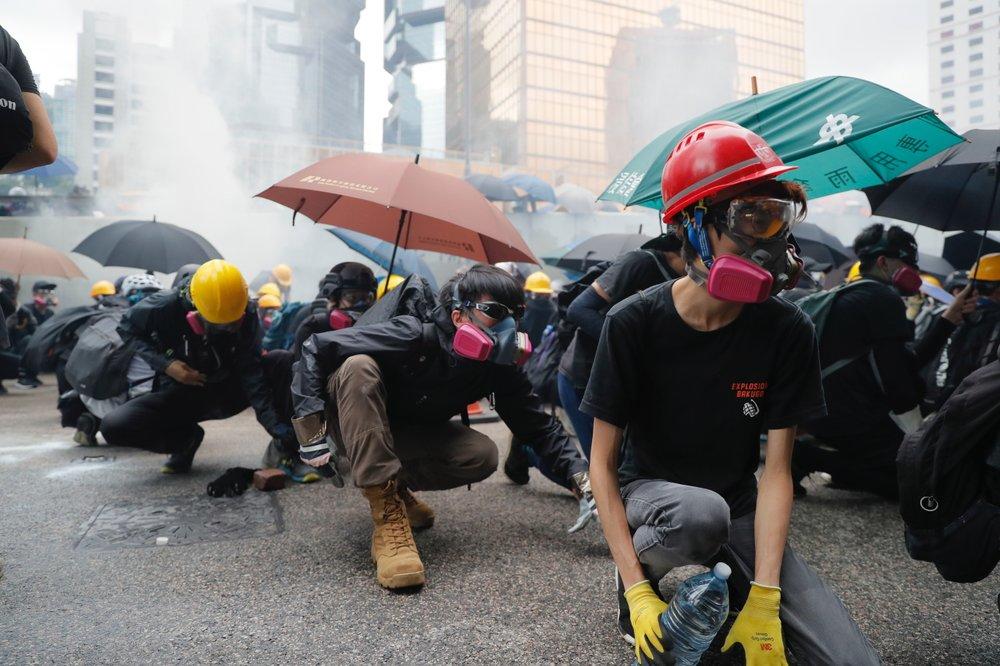After widening its anti-Iran activities to Iraq, where Iran is trying to arm the Shiite militias with ballistic missiles which can reach Israel, the Israeli military and government now appears to have to have decided that the situation in Lebanon demands a similar strategy change.
After the Iranian Revolutionary Guards of the Quds Force together with Hezbollah were about to launch a
massive drone attack on Israel’s north last weekend the Israeli military showed off its impressive intelligence and technological achievements in the war against Iran.
On Sunday, the Israeli air force prevented a massive Iranian drone attack from Syrian soil on northern Israel planned by the shrewd commander of the Quds Force Qassem Soleimani.
“Iran has no immunity anywhere” Israeli Prime Minister Benyamin Netanyahu said after the IAF action in Syria and later warned Soleimani and Hezbollah that Israel knows what they are plotting.
Indeed, the Israeli military seems to have knowledge about virtually every movement of the Quds Force and its many proxies in the Middle East.
The fact of the matter is that Israel’s military
prevented the carefully planned suicide drone attacks on the Israeli communities in the north of Israel by using its massive intelligence-gathering capabilities.
The same happened over the last month with the military build-up of the Iranian-founded and funded al-Hashd al-Shaabi umbrella organization of mainly Shiite militias in Iraq.
Every attempt to deliver Iranian ballistic missiles to al-Hashd al-Shaabi has been thwarted by the Israeli air force over the past few months.
In Lebanon, however, the Israeli military has been careful not to use military force to thwart the Iranian attempts to convert crude rockets into guided missiles and to deliver other sophisticated weapons to Hezbollah.
Instead, Prime Minister Benyamin Netanyahu used diplomacy to stop Iran from delivering the necessary components for the conversion of those rockets.
The US administration upped the pressure on the Lebanese government to contain Hezbollah after Netanyahu made
revelations about Iran’s covert missile program in Lebanon during a speech before the General Assembly of the United Nations at the end of 2018.
After revealing that “ Iran is directing Hezbollah to build secret sites to convert inaccurate projectiles into precision-guided missiles, missiles that can target deep inside Israel within an accuracy of ten meters,” Netanyahu disclosed the location of three secret rocket conversion sites in neighborhoods of Beirut and the International Airport of Lebanon.
“I (also) have a message for Hezbollah today: Israel knows, Israel also knows what you’re doing. Israel knows where you’re doing it. And Israel will not let you get away with it,” the Israeli leader said at the time.
Netanyahu wasn’t exaggerating about Israel’s intelligence gathering capabilities as became clear from an incident in Beirut on Sunday which was widely misinterpreted by the international media.
A few hours after IAF warplanes
took out the Iranian attack drones in the village of Aqraba near Damascus Israel did something not seen in years during the now open conflict with Iran and its proxies.
The two drones which exploded near Hezbollah’s media center in the Moawas district and the headquarters of the terror organization in Dahiyeh neighborhood were used to thwart a new Iranian attempt to deliver components for the conversion of crude missiles,
according to
The Times.
The two DIJ drones loaded with 5.5 kilos of
C4 plastic explosives were hovering over Dahiyeh and Moawas to prevent the delivery of a planetary mixer — an industrial mixer weighing about eight tons used to manufacture solid fuel propellants which improve the engine performance of missiles and their accuracy, the British paper reported.
When two trucks carrying the industrial mixer finally showed up near a parking lot in Beirut they were attacked by the drones and went up in flames damaging key parts of the precision missile technology and destroying a computer control system needed for the conversion of crude rockets into guided precision missiles.
The botched transfer of the mixer and the computer systems was part of an Iranian plan to move the precision missile project from Syrian soil to civilian areas in Beirut.
Apparently, the Iranians and Hezbollah thought Israel wouldn’t dare to carry out an attack on Beirut in order to avoid civilian casualties and to avoid the risk of a new war with Hezbollah.
They again miscalculated.
The Israeli government is determined to deny Hezbollah from building up a precision missile arsenal in Lebanon and to limit the organization’ abilities to launch a massive surprise attack on the Jewish state.
Hezbollah is already in the possession of roughly 140,000 missiles which can reach every part of Israel but has only a few dozen GPS-guided missiles at its disposal.
Israeli officials estimate that when nothing is done Hezbollah will possess more than 1,000 precision missiles within a decade.
Hezbollah has repeatedly warned it will attack vital civilian and military installations in the Jewish state with these missiles in a future war with the Israeli military.
Observers now expect Hezbollah and the Quds Force will retaliate in the coming days and for this reason the IDF decided to close off roads in the vicinity of the Lebanese border.
The Iranian axis will not start a war against Israel at this point in time, however.
Why? Because Soleimani is still in the process of building up forces in Syria and after the debacle on Sunday will realize his forces still have a long way to go before they can match the abilities of the Israeli military.


